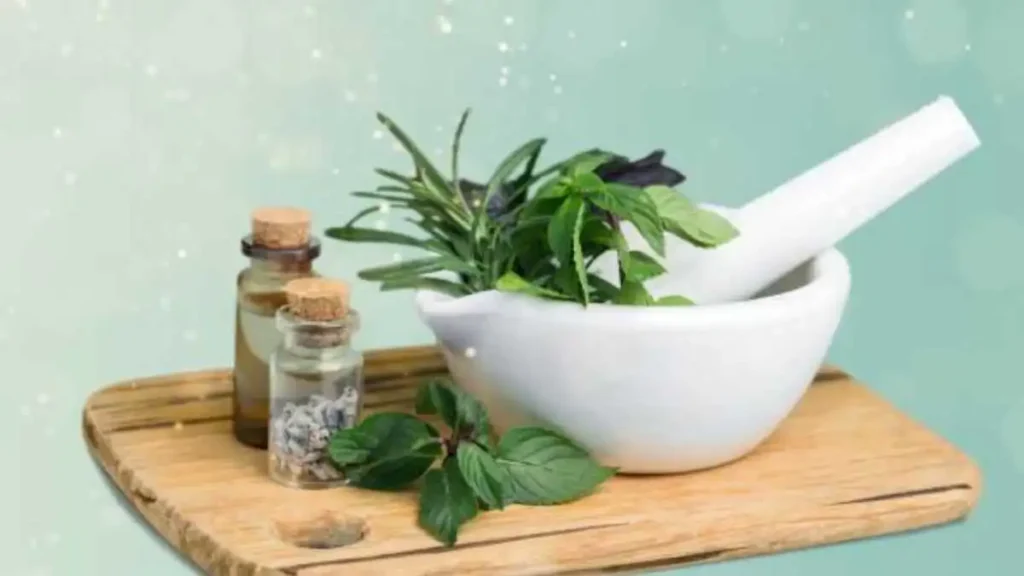HEALTH AND FITNESS
A Beginner’s Guide to Herbal Remedies and Their Uses

Herbs have been used as medicine for centuries and can treat almost anything naturally. As people today become more interested in alternative and holistic healing methods, herbal remedies are experiencing a resurgence. This beginner’s guide will cover some foundational aspects of herbal medicine, including popular herbs and their uses, tips for safe use, and practical applications. Whether you are new to herbal medicine or looking to expand your knowledge, this guide offers the basic information to help you begin your path to natural healing.
Table of Contents
What Are Herbal Remedies?
Herbal remedies refer to the use of plants and plant extracts to treat health issues or enhance well-being. Unlike pharmaceutical drugs, which are usually made from chemicals, herbs use the natural substances in plants. Some popular forms of herbal medicine include teas, tinctures, capsules, oils, and topical applications.
Herbal remedies have been used for centuries in many different cultures, such as TCM (Traditional Chinese Medicine) and Ayurveda. They are used to help the body heal itself, not just to relieve symptoms but to restore balance within the body.
Incorporating advanced integrated health functional medicine into your herbal practice can help achieve a more balanced approach to wellness. By combining herbal remedies with functional medicine principles, you can address the root causes of health concerns through personalized strategies. This integrative approach not only utilizes the therapeutic benefits of herbs but also considers lifestyle, nutrition, and stress factors, offering a comprehensive path to long-term health.
Benefits of Herbal Remedies
The benefits of herbal remedies are numerous. Some examples of how they can promote health and wellness include:
- Natural Ingredients: Herbal remedies come from plants, making them a more natural option than synthetic drugs.
- Lower Risk of Side Effects: When used responsibly, herbal remedies can have fewer side effects than pharmaceutical drugs.
- Holistic Healing: Herbal medicine aims to treat the root cause of an illness, not just the symptoms, fostering overall health and balance.
- Cost-Effective: Many herbal remedies are significantly more affordable than prescription drugs, providing a more accessible form of healthcare.
Top Herbal Remedies and Their Uses
Here’s a list of some widely-used herbs and their common uses. These are excellent herbs for beginners in herbal medicine.
- Chamomile: Known for its calming properties, chamomile is commonly used to reduce anxiety and promote sleep. Chamomile tea is popular before bedtime to help with relaxation.
- Peppermint: This herb is commonly used to aid digestion and soothe headaches. Peppermint oil can be applied to the temples for tension headaches or inhaled for nausea relief.
- Ginger: Ginger has potent anti-inflammatory and antioxidant properties. It is commonly used for nausea relief, muscle pain relief, and overall digestive health.
- Echinacea: Frequently used as an immune booster, especially during cold and flu season, echinacea is thought to reduce the intensity and duration of respiratory infections.
- Lavender: Lavender is also very relaxing and helps relieve stress and improve sleep. Lavender oil is used in aromatherapy or can be applied to the skin for relaxation.
- Turmeric: Turmeric has strong anti-inflammatory and antioxidant properties and is used to support joint health, improve skin, and boost immune function.
- Aloe Vera: Known for its skin-healing properties, aloe vera is used to treat burns, sunburns, and skin irritations. It can also be taken internally for digestive health.
- Valerian Root: Often used as a natural sleep aid, valerian root helps reduce anxiety and improve sleep quality. It is available in capsule or tincture form for easy use.
- St. John’s Wort: This herb is often used as a mood elevator and to manage mild to moderate depression. However, it’s essential to consult a healthcare provider before use, as it can interact with other medications.
- Ginseng: Known for its energizing properties, ginseng is often taken to improve focus, reduce fatigue, and boost immune health. Both American and Asian ginseng varieties are popular.

How to Use Herbal Remedies Safely
While herbal remedies offer numerous benefits, they must be used with care. Here is some safety advice for responsible use:
- Start with Low Doses: If you’re new to herbal remedies, start with low doses to see how your body reacts. Gradually increase the dose as needed.
- Consult a Healthcare Provider: Some herbs can interact with medications or have side effects. If you’re pregnant, nursing, or taking medication, consult a healthcare provider before using herbal remedies.
- Be Aware of Allergies: Allergic reactions can occur with herbs, just as with any other substance. Perform a patch test for topical herbs or start with a small dose.
- Choose Quality Sources: Herbal remedies vary in quality. Choose organic, non-GMO herbs from reputable sources to ensure the purity and potency of your remedies.
- Follow Instructions: Many herbs have specific usage instructions, including whether they’re intended for short- or long-term use. Follow these guidelines to avoid potential risks.
Tips for Beginners
Starting with herbal remedies can feel overwhelming due to the vast number of herbs available. Here are some tips to get you started in the realm of herbal medicine:
- Experiment with Teas: Herbal teas are a gentle and enjoyable way to introduce herbs into your routine. They’re easy to prepare and don’t require specialized knowledge.
- Keep a Journal: Track the herbs you use, along with any effects you experience. This practice can help you understand which herbs work best for you.
- Learn from Reputable Sources: Books, online courses, and workshops can provide valuable insights into safe herbal practices. Avoid relying solely on anecdotal advice.
- Go Slowly: Introduce one herb at a time so you can observe how each herb affects you.
Incorporating Herbal Remedies Into Daily Life
Herbal remedies can be easily integrated into your daily routine, promoting long-term health benefits. Here are a few simple ways to do so:
- Morning Boost: Start your day with a cup of ginger or peppermint tea to support digestion and energy levels.
- Midday Relaxation: Take a few minutes to inhale lavender essential oil to reduce stress and improve focus.
- Evening Calm: Drink chamomile tea in the evening to promote relaxation and better sleep.
- Skin Care Routine: Incorporate aloe vera gel or tea tree oil for natural skincare.
- Immune Support: Take echinacea during the cold season to support immune health.
Herbal remedies can easily fit into various aspects of your lifestyle. From teas to essential oils, these natural solutions offer a convenient and holistic approach to wellness.
Final Thoughts
Herbs are a powerful healing tool in the natural world, but they must be respected. This beginner’s guide provides foundational knowledge to start exploring herbal medicine safely. Always consult with a doctor before introducing new herbs into your routine, especially if you’re on medication or have underlying health issues. You can enhance your path to wellness naturally by starting slowly, learning about each herb’s properties, and following all safety precautions.
-

 GENERAL2 months ago
GENERAL2 months agoUncovering the World of кинокрадко: The Dark Side of Film Piracy
-

 GENERAL1 month ago
GENERAL1 month agoUnveiling the Art of преводсч: How Translators Bridge Language Barriers
-

 GENERAL3 weeks ago
GENERAL3 weeks agoChristofle – For Those Who Dream of Family Heirloom Silver
-

 YOGA1 year ago
YOGA1 year ago4 Person Yoga Poses for Beginners


























